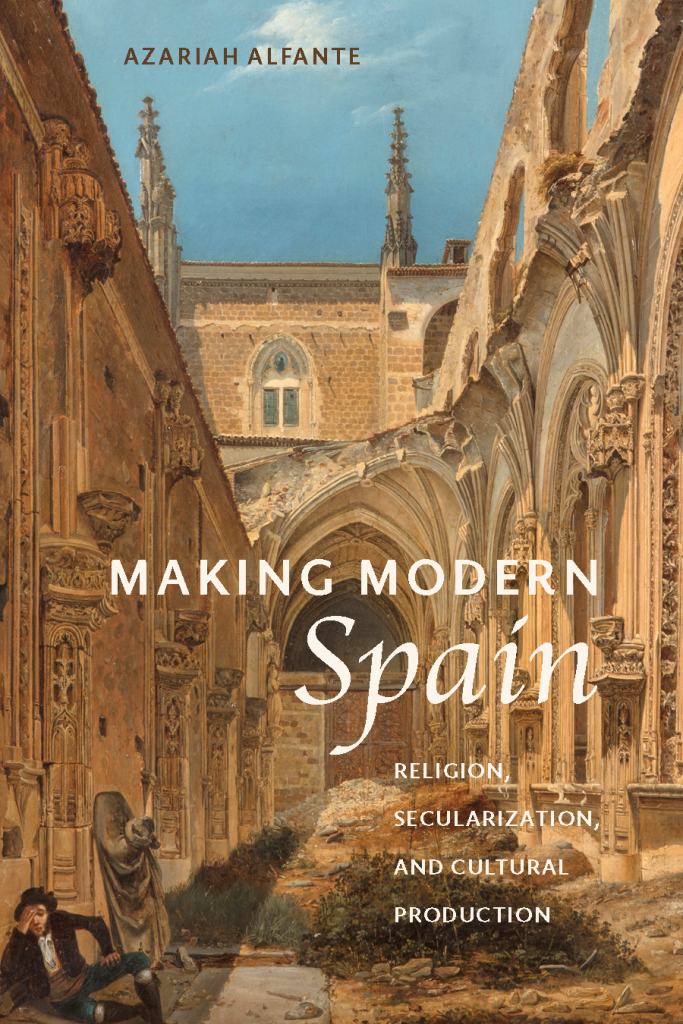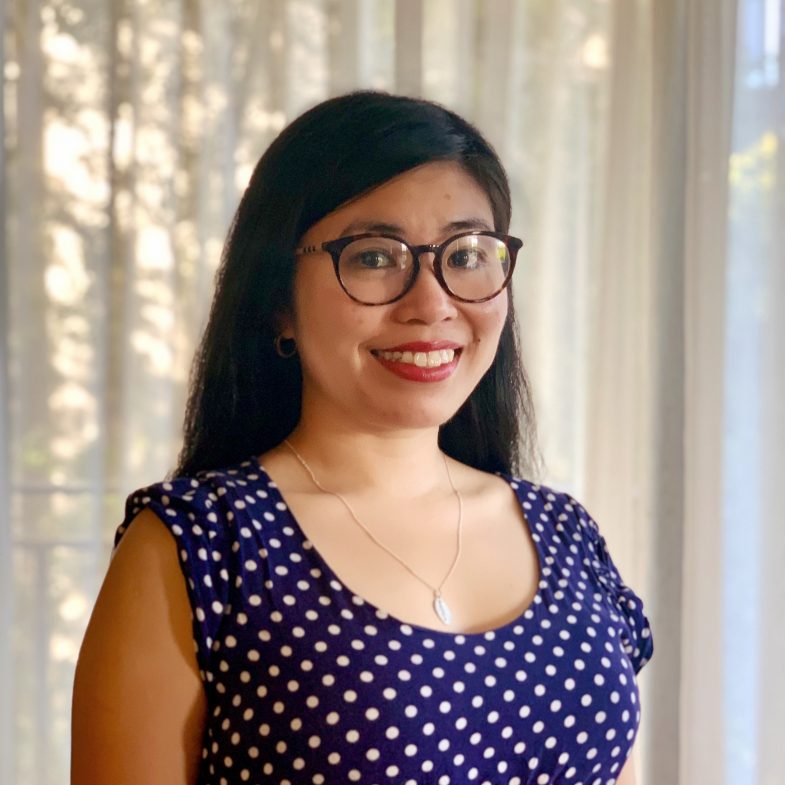
In her first publication, Making Modern Spain: Religion, Secularization, and Cultural Production, Azariah Alfante explores the work of select nineteenth-century writers, intellectuals, journalists, politicians, and clergy who responded to cultural and spiritual shifts caused by the movement toward secularization in Spain. Drawing on archival research, cultural theory, memory studies, and sociology, Alfante demonstrates how Spain’s liberalizing movement profoundly influenced class mobility and faith among the populace.
</p>
Here, Professor Alfante talks with us about the presence of religion in Spain historically as well as presently, highlighting factors of influence on public opinion of the clergy, sacred buildings, and religious orders:
You mention the “problema de España” in your introduction. What exactly is the “problema de España” as you see it, and how pertinent is it to the discussion of modern Spain?
Regarding nineteenth-century Spain, the historical terms “problema religioso” [religious problem] or “cuestión religiosa” [religious question] refer to the intense debates surrounding the meanings, forms, and functions of religion in wider society. Political, social, and religious perspectives varied as Spain sought to bolster its economy and transform its spiritual identity to meet the demands of modernity.
Do you think modern Spain intentionally wants to ignore the historical contexts from which the present is derived? Or is it more a matter of disinterest or misunderstanding of the importance of history’s impact?
I would agree that there has been both disinterest and misunderstanding, which only demonstrates the importance of knowing your history. In fact, memory became a cultural and political issue during the transition from dictatorship to democracy in the twentieth century. I don’t believe most people today in Spain wish to ignore their nation’s history, in which religion played an indispensable role. Their responses to Spain’s past would differ for multiple reasons.
How much of a role did the secularization of Spain play with how people overlook monuments of the past? Would the dynamic of the past and present be exceptionally different if Spain maintained the religious structures within it?
That’s an excellent question. It’s easy to overlook monuments when you lack adequate access to information that would lead to a nuanced understanding. Extreme secularization processes led to the “disappearance” of buildings and communities in the nineteenth century. The work of scholars and archivists have helped foreground these histories. Monuments differ according to their purpose (civil or ecclesiastical), and it is clear that nowadays many religious edifices in
Spain have been transformed into tourist sites or public buildings such as bars. Spain has maintained its Catholic identity despite its current non-confessional status and tension-laden history. Religious structures are embedded into its sociocultural fabric. However, the genuine observance, interpretation, and valorization of faith have changed, and these realities are interesting to observe.
How has Catholicism (and religion in general) changed within Spain after the expulsion of religious communities and governmental confiscation ecclesiastical property? What are the effects of organized religion in Spain now versus the past?
In the nineteenth century, the Napoleonic Occupation, the expulsion of religious communities, and the confiscation of ecclesiastical property were the major conflicts that the Spanish Church faced. The physical landscape of religion (its numerous sanctuaries and abodes) changed considerably. Nowadays, freedom of religion in Spain means that there is no official creed, yet the majority of its inhabitants are Catholic (both practicing and non-practicing), and Catholic feast days and holidays continue to be of cultural and religious significance to many.
In the wake of your research and writing, have you found that there is a movement to better integrate awareness of the past into current day understanding and perceptions of the present?
I am not aware of a major movement, but I know that there are networks of scholars across the humanities, fine arts, and social sciences who have addressed aspects of Spain’s cultural and artistic patrimony and ecclesiastical history within the broader fields of collective memory and secularization. The interdisciplinarity of their methodological approaches and theoretical frameworks is encouraging. Nothing inspires me more than a desire to rescue human histories and voices from oblivion and bring them to the light.
Who do you hope to reach with Making Modern Spain, and how do you expect the book will influence future scholarship?
I hope that this book, which undertakes historical and literary analyses, will be of help to students, researchers, and anyone interested in the profound intersections among religion, culture, and memory. I expect that it will contribute to future scholarship because it centers on how humans experienced and perceived seismic changes in their private, public, and spiritual lives.
Making Modern Spain: Religion, Secularization, and Cultural Production is available to order in paperback, hardback, and ebook.
Azariah Alfante obtained her PhD at the University of Auckland in New Zealand, and she is currently a lecturer at the University of Glasgow. She has published on Spanish Romanticism and Philippine writing and history. Her current research interests lie in the intersections between religion, memory, and culture.
Image Credit: Hsin Huang
